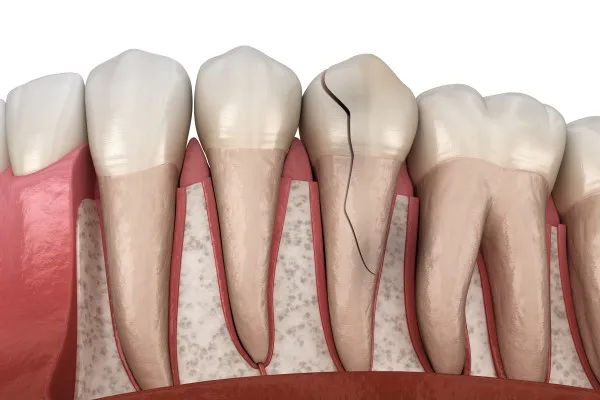10 Habits That Damage Your Teeth (and How to Fix Them)



Daily routines can have a surprising impact on your dental health. While most people focus on brushing and flossing, many overlook seemingly harmless habits that can damage teeth over time. As a dentist in Chaska, I often see the consequences of these behaviors firsthand—chipped enamel, increased sensitivity, and early signs of decay. Fortunately, identifying these habits early and making small changes can go a long way in preserving your oral health.
At Chaska Family Dental, we believe in educating our patients to prevent dental problems before they begin. This article outlines ten everyday habits that harm your teeth and explains simple, dentist-approved ways to break them. Whether you are managing a busy schedule or trying to improve your smile, understanding these hidden risks is the first step toward achieving Happy, Healthy Smiles.
Chewing on ice may seem harmless, but it can easily lead to cracked or chipped teeth. Ice is dense and abrasive, and repeatedly crunching it can weaken enamel or damage dental restorations, such as crowns or fillings.
Fix: Sip cold beverages through a straw and switch to softer alternatives, such as crushed ice or chilled fruit. If you regularly crave ice, consult your healthcare provider—it may be a sign of an iron deficiency.
Opening packages or biting tags with your teeth may seem like a time-saving measure, but it puts excessive pressure on your enamel and can lead to chips, fractures, or jaw strain.
Fix: Keep simple tools, such as scissors, bottle openers, or box cutters, easily accessible. Treat your teeth as essential parts of your body, not tools for convenience.
Nail biting not only affects the appearance of your hands, but it also wears down your front teeth and increases the risk of jaw discomfort or tooth misalignment. It can also introduce bacteria into the mouth.
Fix: Use a bitter-tasting nail polish, keep your nails trimmed, or find alternative stress-relief strategies, such as squeezing a stress ball. Behavioral techniques such as habit reversal therapy can also be helpful.
Overbrushing or using a hard-bristled toothbrush may feel thorough, but it can erode enamel and irritate gum tissue, leading to gum recession and sensitivity.
Fix: Choose a soft-bristled toothbrush and use light, circular motions. Replace brushes every three months or after recovering from illness. Brushing should feel gentle, not aggressive.
Many people grind or clench their teeth during sleep or stress without even realizing it. Over time, this can cause enamel erosion, tooth fractures, and chronic jaw pain.
Fix: Consult with your dentist about a custom night guard. Reducing stress and avoiding caffeine late in the day also helps alleviate nighttime clenching.
Constant snacking and sipping on sugary beverages provide a steady supply of fuel for bacteria, increasing the risk of cavities and enamel erosion.
Fix: Limit snacking between meals and opt for water instead of soda or juice. If you do consume sweets or acidic drinks, rinse with water afterward and wait 30 minutes before brushing to avoid brushing softened enamel.
Failing to protect your teeth during contact sports puts you at high risk for chipped, cracked, or knocked-out teeth.
Fix: Wear a properly fitted mouthguard during any activity that could result in dental injury, including football, hockey, skateboarding, or mountain biking. Ask your dentist about custom-fit options for better comfort and protection.
Even if your teeth feel fine, skipping regular dental visits can allow minor issues to go unnoticed and turn into significant problems. Preventive care is key to long-term dental health.
Fix: Schedule professional cleanings and checkups every six months. A routine dental exam can detect early signs of decay, gum disease, or oral cancer that may not be visible or painful yet.
These habits can interfere with proper jaw and tooth development, leading to misaligned bites and potentially necessitating future orthodontic treatment.
Fix: Gently discourage the behavior and offer positive reinforcement for any progress made. In some cases, a pediatric dentist or speech therapist may provide targeted solutions to correct oral posture.
Ignoring dental discomfort, sensitivity, or visible damage can lead to more serious problems that are harder and more expensive to treat later.
Fix: See your dentist as soon as you notice any changes in your oral health. Prompt treatment helps preserve natural teeth and reduces the risk of more invasive procedures.
Changing these habits may feel difficult at first, but even minor daily adjustments can significantly improve your dental health. Simple behaviors such as using your teeth to open packaging or sipping sugary drinks throughout the day often lead to long-term oral issues. As a dentist in Chaska, I emphasize preventive care and honest conversations to help every patient protect and preserve a strong, healthy smile.
At Chaska Family Dental, we aim to help you build better habits and understand the connection between your daily routine and your oral health. If you have questions or would like to evaluate how your habits might be affecting your teeth, we invite you to schedule a visit with our team.
Common damaging habits include teeth grinding, chewing ice, nail biting, overbrushing, and frequent consumption of sugary drinks.
Yes, using teeth to open items can lead to cracks, chips, and even dental emergencies.
Grinding wears down enamel, increases tooth sensitivity, and can lead to jaw disorders and broken restorations.
Yes, sipping sugary drinks throughout the day bathes your teeth in acid, creating an ideal environment for decay.
It is recommended to visit your dentist every six months for a checkup and professional cleaning, even if you do not experience any symptoms.
Do you recognize any of these habits in your routine? Which ones are the hardest to change? Let us know what strategies have helped you protect your smile, and consider sharing this article with friends or family who might benefit from these simple fixes.